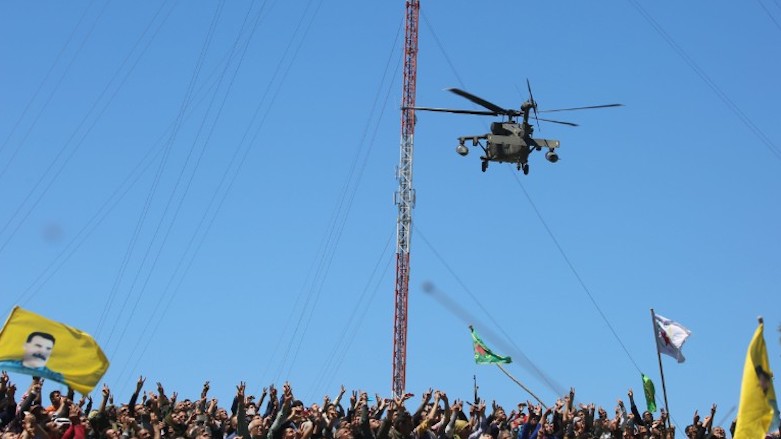Turkey expects US to end partnership with Syrian Kurds

ERBIL, Kurdistan Region (Kurdistan 24) – Turkish Prime Minister Binali Yildirim on Sunday said his government hoped the United States would end its partnership with Kurdish forces battling the Islamic State (IS) in Syria.
“Our expectation is that [the US] ends this partnership in no time and returns to its true ally [Turkey],” Yildirim told a press conference in Istanbul before his departure to the UK.
He argued now that IS was about to be eradicated, Washington was no longer “obliged” to support the Kurdish People’s Protection Units (YPG) which Ankara views as the Syrian branch of the Kurdistan Workers’ Party (PKK).
Yildirim’s call for the American administration came as his Foreign Minister claimed President Donald Trump pledged to his Turkish counterpart Recep Tayyip Erdogan that he would halt arms supplies to the YPG during a phone call Friday.
The Turkish PM said he could not comment on the promise unconfirmed by the White House which said there were “pending adjustments” to the aid provided to US partners in Syria.
A timeline of Kurdish-American alliance in Syria
Kurdish-American alliance in Syria began in late 2014 when the border town of Kobani came under an all-out assault by IS, prompting former US President Barack Obama to sign an order authorizing American warplanes to conduct airstrikes in support of YPG fighters.
The US-led coalition then also airdropped much-needed medical and arms supplies to the men and women resisting with modest weaponry and very little ammunition in the besieged Kobani, informing Erdogan of the move with a phone call, disregarding objections from him.
Weeks later, Kobani’s fighters were reinforced by the Kurdistan Region’s Peshmerga forces whose military convoy passed through the Kurdish region in Turkey during the Turkish independence day, with thousands of people waving Kurdistan flags.
By that time, the months-long battle tilted toward a Kurdish victory in February 2015 as the US had set up deeper contacts with the YPG, all despite repeated protestations by its NATO ally Turkey.
Later the same year, the Obama administration publicly announced the deployment of 50 US special forces to assist and coordinate with the Kurds in their march on IS-held towns and villages in northern Syria.
Over the years, that number grew in hundreds and the US troops’ mission expanded as a YPG-led Arabo-Kurdish group, the Syrian Democratic Forces (SDF), set its eyes on the de facto IS capital of Raqqa in eastern Syria.
Having inherited Obama’s “degrade and destroy” IS mission, in May 2017, President Trump authorized the Pentagon to deliver more advanced weapons and armored vehicles ahead of the Raqqa campaign—again, much to the dismay of Ankara.
Since then, thousands of trucks carrying US military aid have passed into the de facto Kurdish autonomous region in northern Syria, known as Rojava, from the Kurdistan Region.
With the fall of Raqqa and an end to the self-declared IS caliphate in October, Ankara began increasing pressure on the US to abandon the YPG which protects Rojava.
Americans have also set up a dozen or so army installations and air bases there.
Confining its mission with the Kurds strictly to military terms, the US has refrained from backing an inclusion of Kurdish groups in the UN-led peace talks in Geneva for a political solution to the six-years-long Syrian civil war.
Ankara, meanwhile, along with the Syrian government’s two primary backers Russia and Iran, started sponsoring separate talks between the regime and opposition in Kazakhstan’s Astana and the Black Sea city of Sochi where Erdogan said his country did not want to see Rojava representatives.
Editing by Karzan Sulaivany
